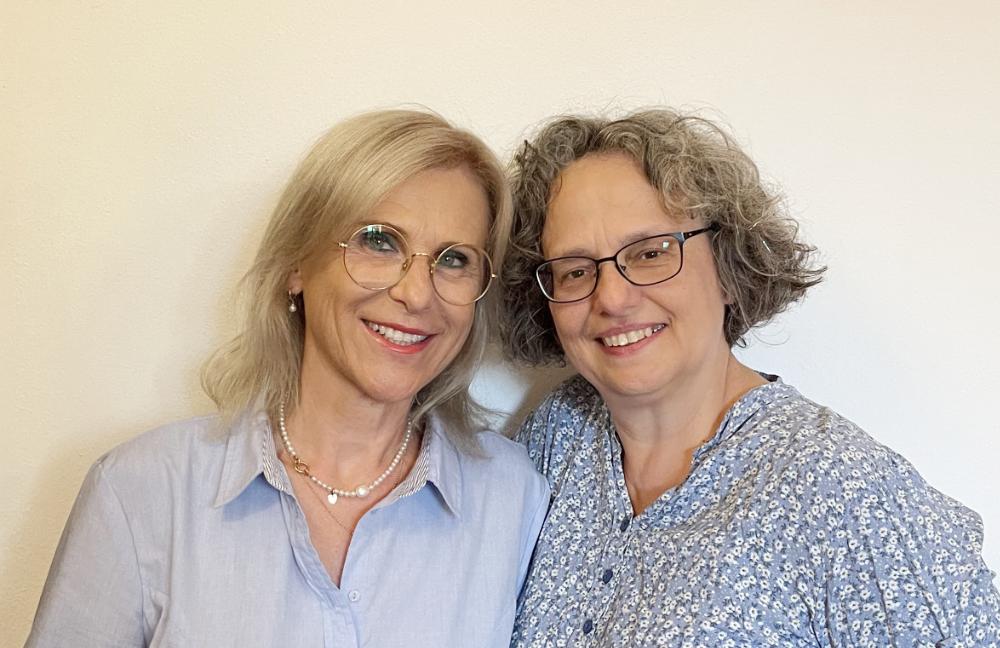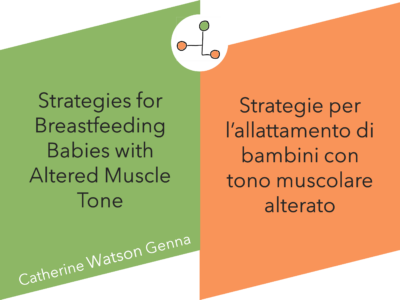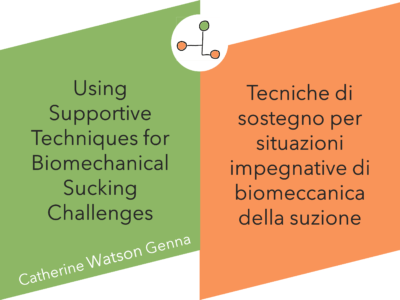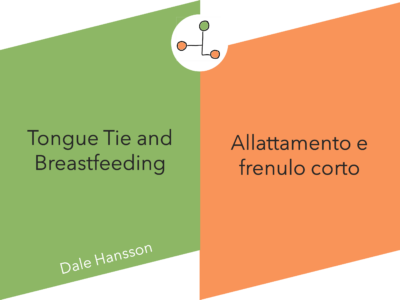ADVANCED COURSES
Online training in Lactation
We want to offer you education in lactation that excites you as it excites us, that gives you practical and useful tools to support families , and that helps you to work with satisfaction A kind of training that deepens your knowledge and broadens it to new areas Covering the various areas of the IBLCE’s Detailed Content Outline is required but doing it with enthusiasm and satisfaction is better
We want you to discover new horizons and take the opportunity to learn from renown international speakers – webinars in English are accurately subtitled in Italian. Learning Notebooks are provided to complement the webinars and in order to consolidate your study – this is a priority for us
In our catalogue we continuously add new courses in different areas of breastfeeding and lactation.
- Easy and quick learning experience
- You can attend and learn when you prefer, with access to the course resources for 30 days after purchase.
- Learning Notebooks help to consolidate your study.
- After each course, you can earn an attendance certificate valid for IBCLC recertification (with CERPs, when indicated).
- Each course is classified according to the pertinent areas of the IBLCE’s Detailed content Outline
- Ogni corso oltre al webinar include slides/handout (in lingua originale), bibliografia, quaderni di apprendimento ed eventuale materiale di studio aggiuntivo.
- Payment by credit card.
Purchase of a course allows you to
Access the course for 30 days
Download additional material
Access to the evaluation test
Receive an attendance certificate
How does it work?
You can browse the complete catalogue of our courses at the following link or scrolling the present page.
Register or log in with your credentials using the icon at the top.
Insert the desired course in the shopping - cart and proceed to the payment by credit card. After payemt the course will be displayed in the personal panel area.
Access the course from your personal panel area – start from the introduction and complete all parts one after the other.
Once you finish all the parts of the course, including the passing of the test, you will receive your attendance certificate. The certificate will also be found in the personal panel area.
Detailed Content Outline IBLCE’s ®
VIEW ALL COURSES ON THIS CATEGORY >
A. Infant
1. Feeding behaviours at different ages
2. Food intolerances/allergies
3. Anatomia del/la neonato/neonata/lattante e sfide anatomiche/orali
4. WHO guidelines for introducing complementary foods
5. Low birth weight and very low birth weight
6. Milk banking – formal and informal
7. Normal infant behaviours
8. Nutritional requirements – including preterm
9. Preterm development, growth, and behaviours (including late preterm)
10. Skin tone, muscle tone, reflexes
11. Term development and growth
12. WHO growth charts with gestational age adjustment
13. Stooling and voiding
B. Maternal
1. Breast development and growth (typical and atypical)
2. Breast surgery
3. Composition of human milk
4. Maternal anatomical challenges
5. Maternal nutritional status
6. Nipple structure and variations
7. Nipple modifications (e.g., piercings, tattoos)
VIEW ALL COURSES ON THIS CATEGORY >
A. Physiology of Lactation
1. Relactation
2. Infertility issues
3. Inducing lactation
4. Gravidanza e allattamento in tandem
5. Multiples (e.g., twins, triplets)
B. Endocrinology
1. Hormonal influence of milk production
2. Diabetes
3. Maternal hormonal disorders (e.g., pituitary, thyroid, Polycystic Ovarian Syndrome)
4. Maternal autoimmune disorders
5. Newborn hypoglycemia
VIEW ALL COURSES ON THIS CATEGORY >
A. Infant
1. Ankyloglossia
2. Cleft lip and palate
3. Congenital anomalies (e.g., gastrointestinal, cardiac)
4. Gastroesophageal Reflux Disease (GERD), reflux
5. Hyperbilirubinemia
6. Infant neurological disabilities
7. Small for Gestational Age (SGA), Large for Gestational Age (LGA)
8. Infant acute disease (e.g., infectious, cardiac, metabolic)
9. Vertically transmitted infections (e.g., HIV, Hepatitis B)
10. Esophageal atresia
11. Inborn error of metabolism
12. Infant cancer
13. Infant GI anomalies
B. Maternal
1. Abscess
2. Milk ejection reflex dysfunction
3. Maternal acute disease (e.g., infectious, cardiac, metabolic)
4. Maternal chronic disease
5. Maternal disability (physical and neurological)
6. Mastitis
7. Milk supply, low or over
8. Nipple and breast conditions
9. Nipple pain and trauma
10. Post-partum hemorrhage
11. Pre-eclampsia / pregnancy induced hypertension
12. Maternal cancer
VIEW ALL COURSES ON THIS CATEGORY >
A. Alcohol
B. Nicotine and tobacco
C. Cannabis
D. Medications (e.g., prescriptions, over-the-counter, diagnostic and therapeutic procedures, aids to labor and delivery)
E. Drugs of abuse
F. Contraception
G. Galactagogues
H. Gel dressings/nipple creams
I. Herbs and supplements
J. Chemotherapy/radiation therapy/radioactive scans
VIEW ALL COURSES ON THIS CATEGORY >
A. Transition to parenthood
B. Birth practices
C. Foods to eat/avoid that influence lactation
D. Employment – beginning or returning to work
E. Family lifestyle
F. Identifying support networks
G. Maternal mental health
H. Maternal psychological/cognitive issues
I. Breastfeeding dyad relationship
J. Safe sleep
K. Weaning
L. Cultural awareness
VIEW ALL COURSES ON THIS CATEGORY >
A. Effective milk transfer (including medically-indicated supplementation)
B. First hour
C. Latching (attaching)
D. Managing supply
E. Milk expression (e.g., pumping, hand expression, leakage)
F. Position of the breastfeeding dyad (hands-off)
G. Refusal of breast, bottle
H. Skin-to-skin (kangaroo care)
VIEW ALL COURSES ON THIS CATEGORY >
A. Equipment and Technology
1. Feeding devices (e.g., tubes at breast, cups, syringes, teats, paladai)
2. Handling and storage of human milk
3. Nipple devices (e.g., shields, everters)
4. Dummies (pacifiers)
5. Pumps
6. Scales (e.g., accuracy, precision, operation)
7. Communication technology (e.g., virtual visits, translation or interpretation services, websites)
B. Education and Communication
1. Active listening
2. Anticipatory guidance
3. Care plan development and sharing
4. Educating mothers and families
5. Educating professionals, peers, and students
6. Emotional support
7. Empowerment
8. Group support
C. Ethical and Legal Issues
1. Breastfeeding in public
2. Clinical competencies
3. Code of Professional Conduct (CPC)
4. Principles of confidentiality
5. WHO code – advocacy and policy
D. Research
1. Apply evidence-based practice
2. Interpret research results
3. Use research to help develop policies and protocols
4. Design research (including gaining ethical permission)
5. Participate in surveys and data collection
E. Public Health and Advocacy
1. Advocate for Baby-Friendly Hospital Initiative (BFHI)
2. Advocate for compliance with World Health Organization International Code of Marketing of Breast-milk Substitutes (WHO Code)
3. Advocate for mother / infant in healthcare system
4. Develop breastfeeding-related policies
5. Advocate to government / health ministries
6. Breastfeeding in emergency situations (e.g., natural disasters, personal emergencies)
OUR COURSES
About us

Micaela Notarangelo and Chiara Toti
Siamo entrambe IBCLC e formatrici, collaboriamo da anni sia nella pratica clinica che nella formazione.
We are different in personality and in style, but these differences are complementary and together we are more than the sum of our parts.
We share the love for scientific accuracy, and attention to people. We love sharing our knowledge and experience, cumulated in our several years of research and work. We are dedicated to finding the most effective ways to transmit our passion.



